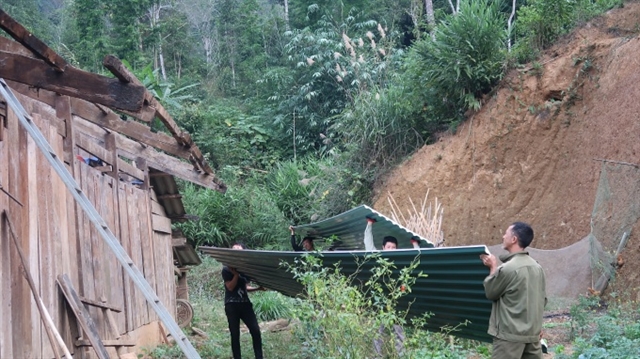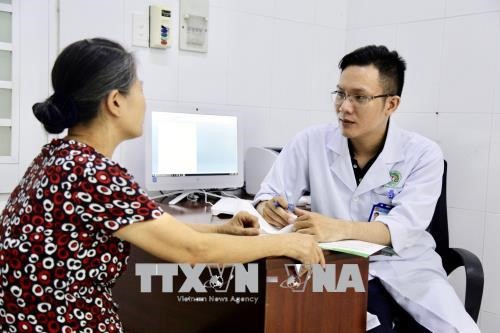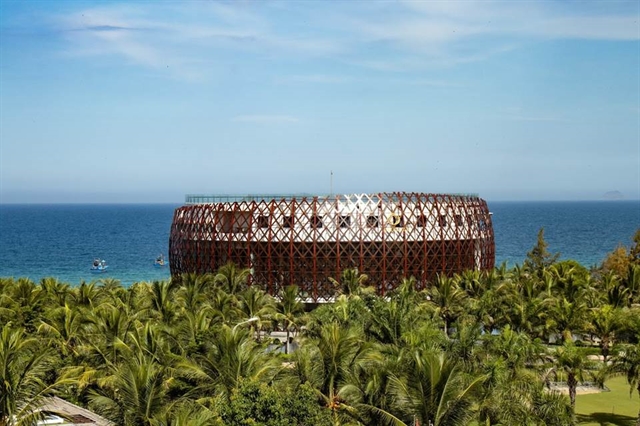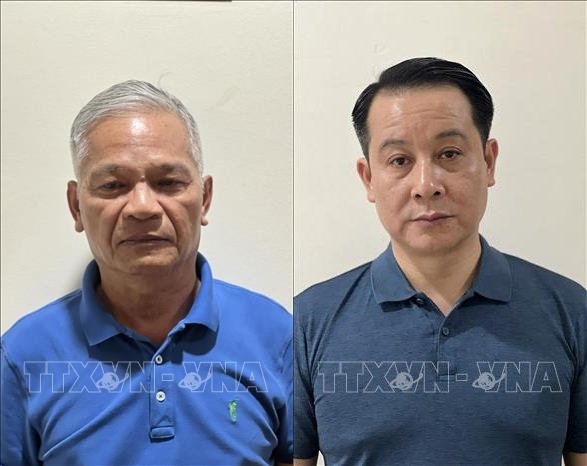 Society
Society

The Ministry of Health is making efforts to strengthen the grassroots healthcare system to improve the quality of primary healthcare and achieve universal health coverage, which will ensure that everyone can access quality healthcare services without facing financial hardship.
 |
| A doctor at the Thảo Điền Ward Health Station in HCM City’s District 2 examines a patient. —VNA/VNS Photo Đinh Hằng |
HCM CITY— The Ministry of Health is making efforts to strengthen the grassroots healthcare system to improve the quality of primary healthcare and achieve universal health coverage, which will ensure that everyone can access quality healthcare services without facing financial hardship.
Speaking at a workshop on this issue in HCM City on Wednesday, Minister of Health Nguyễn Thị Kim Tiến said all health stations in wards, towns and communes would be upgraded and developed to strengthen primary healthcare in keeping with family medicine principles by 2023.
Since last year 26 health stations in eight cities and provinces have been selected to implement the ministry’s pilot programme for improving grassroots-level healthcare.
Tiến called on people’s committees in those places to allocate funds for upgrading facilities at those health stations.
“The ministry will provide them with sufficient medical equipment.”
Tiến targets completion of the task by early next year.
“Local health departments will be in charge of arranging doctors for the stations. Doctors at district-level health facilities should be sent to the stations for a short time in case of a shortage there or to train their personnel.”
Dr Nguyễn Tấn Bỉnh, director of the HCM City Department of Health, said the city would follow the roadmap for improving its grassroots-level healthcare system proposed by the ministry.
“Doctors at district-level hospitals are being sent to local health stations to work for 16 months to one year.”
The city has also developed its own other health stations like the three selected for the pilot programme, he added.
Huỳnh Minh Phúc, deputy director of the health department of the Mekong Delta province of Long An, which has been selected for the programme, told Việt Nam News three health stations in his province have been chosen for upgrades.
They are in Mỹ Thạnh Đông, Mỹ Quý Tây and Bình Thành communes in Đức Huệ District, he said.
“Because the Mỹ Thạnh Đông Health Station is close to several hospitals, it is difficult to get patients. So it has been chosen to develop healthcare services for the prevention of contagious and non-communicable diseases, environmental hygiene and propagation of preventive measures against diseases,” Phúc said.
The Bình Thành and Mỹ Quý Tây stations are adopting more medical techniques to improve treatment because many people come there since they are situated far from hospitals, he added.
They have enough doctors to meet the need, he said.
After the programme ends, the province would upgrade its remaining 189 health stations, he promised.
The ministry also plans to create a telemedicine network comprising the 26 selected health stations, connecting them with higher-level health facilities.
Tiến said grassroots-level healthcare facilities across the country do not meet the expectations and demands of the public.
Many patients still do not trust their local health stations and go to higher-level hospitals for treatment, she said.
“Eleven per cent of patients who go to provincial-level hospitals can be treated at health stations.” — VNS









